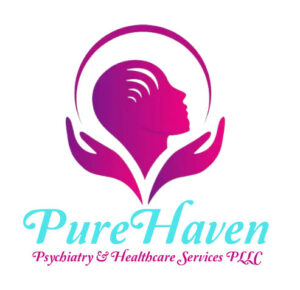How to Know If You Have ADHD: Decode the Warning Signs Early
When it comes to mental health, recognizing early signs of attention-deficit/hyperactivity disorder (ADHD) is essential—especially because the condition often goes unnoticed or misdiagnosed for years. Whether you’re struggling to stay focused, feeling chronically disorganized, or battling persistent restlessness, these could all be clues that ADHD may be affecting your life. This blog will help you understand how to know if you have ADHD, explore common symptoms in children and adults, and guide you on when to seek professional help.
Table of Contents
- What Is ADHD?
- How to Know If You Have ADHD: Key Signs
- ADHD in Adults vs. Children
- What Causes ADHD?
- How ADHD Affects Daily Life
- When to Get Evaluated
- Call to Action
- Final Thoughts
1. What Is ADHD?
ADHD is a neurodevelopmental disorder that affects both children and adults. It’s marked by patterns of inattention, hyperactivity, and impulsivity that interfere with daily functioning or development. Although commonly diagnosed in childhood, many people don’t realize they have ADHD until adulthood, often after years of unexplained struggles with focus, productivity, or emotional regulation.
2. How to Know If You Have ADHD: Key Signs
Understanding how to know if you have ADHD starts with identifying hallmark symptoms. These may include:
-
Trouble focusing on tasks or conversations
-
Frequently losing items like keys, phones, or paperwork
-
Forgetfulness, even for important appointments or responsibilities
-
Fidgeting, restlessness, or difficulty sitting still
-
Interrupting others or blurting out answers prematurely
-
Procrastination and poor time management
-
Mood swings, irritability, or low frustration tolerance
If these symptoms persist across different settings (home, work, school) and have been present since childhood, ADHD might be the root cause.
3. ADHD in Adults vs. Children
Children with ADHD often exhibit overt hyperactivity—such as running, climbing, or talking excessively. In contrast, adults may experience more subtle symptoms like chronic disorganization, difficulty prioritizing, or trouble sustaining attention during meetings or conversations.
Importantly, some adults have “inattentive-type” ADHD, where they may not be hyperactive but still struggle significantly with focus and memory. Recognizing these differences is vital in understanding how to know if you have ADHD at any age.
4. What Causes ADHD?
ADHD isn’t caused by poor parenting, laziness, or lack of effort. It has a strong genetic component, often running in families. Other contributing factors may include:
-
Brain structure and function – differences in brain activity, especially in areas controlling attention and impulse regulation
-
Prenatal exposures – such as smoking or alcohol use during pregnancy
-
Premature birth or low birth weight
5. How ADHD Affects Daily Life
Left undiagnosed or untreated, ADHD can create challenges in virtually every area of life—work, school, relationships, and personal well-being. People with ADHD often feel misunderstood, frustrated, or overwhelmed by tasks that seem easy for others. They may struggle to meet deadlines, maintain routines, or avoid impulsive decisions. This can lead to emotional issues like anxiety, low self-esteem, and even depression.
6. When to Get Evaluated
If you’re wondering how to know if you have ADHD and recognize several of the symptoms discussed above, it’s time to consider a professional evaluation. Licensed psychiatrists, psychologists, or neurologists can assess your symptoms using structured diagnostic tools and rule out other potential causes.
Diagnosis is often the first step toward effective treatment, which may include behavioral therapy, lifestyle changes, and sometimes medication. The earlier the diagnosis, the better the long-term outcomes.
7. Call to Action
If you’ve been struggling with focus, forgetfulness, or emotional regulation and suspect ADHD might be the cause, don’t ignore the signs. At Pure Haven Psychiatry, we provide compassionate, evidence-based ADHD evaluations and treatments tailored to your unique needs. Our team is committed to helping you gain clarity, confidence, and control over your mental health. Contact us today to schedule a consultation and take the first step toward a more focused future.
8. Final Thoughts
Knowing how to identify ADHD in yourself or a loved one can be life-changing. Whether you’re dealing with constant distractions, missed deadlines, or emotional ups and downs, understanding the symptoms and getting a proper diagnosis can unlock the support and solutions you need. Don’t wait for things to get worse—decode the signs early and reclaim your focus and peace of mind.
Disclaimer
This blog is intended for informational purposes only and does not replace professional medical advice. If you are experiencing mental health symptoms, consult a qualified healthcare provider for diagnosis and treatment.

